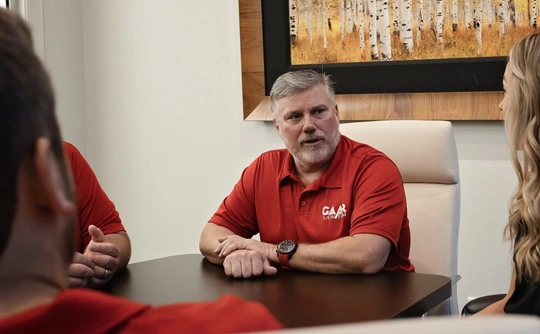Lafayette Jones Act Lawyer

Lafayette Jones Act Attorney
If you have been injured while on a vessel or while working on a vessel, you should speak with a Lafayette Jones Act lawyer from our firm. A lawyer can help you explore the extent of the legal options available to you. We can work closely with you to immediately address your concerns and help you start building up a strong legal strategy to protect your rights and interests. Together, we can pursue the compensation you need for recovery.
Under the Jones Act, a seaman can file a legal claim against their employer to pursue a greater recovery of damages that may be unavailable under other bodies of law. Our legal team can help you file a claim and pursue necessary compensation. Call to schedule a free consultation.
What Types of Compensation Can You Get for a Maritime Injury?
Workers in the maritime industry can take advantage of the Merchant Marine Act of 1920. This is also known as the Jones Act. This act permits injured workers the ability to file legal claims against their employer’s or another worker’s negligence while at work.
Injured workers could file a legal claim against their employer for:
- Lost wages
- Mental and emotional anguish
- Pain and suffering
What the Jones Act Covers
The Jones Act provides injured workers with additional means of financial recovery that may not otherwise be available under traditional workers’ compensation schemes. The act covers workers who were injured while working on a vessel. Under current law, a vessel includes:
- Jackup rigs
- Semisubmersible rigs
- Ships
- Drill barges
- River casinos
- Tugboats
- Shrimp boats
- Fishing boats
- Trollers
- Tankers
- Crew boats
- Utility boats
- Offshore support vessels
- Water taxis
An injured worker can file a claim against their employer and/or co-workers for injuries resulting from their negligence if they were aboard any of these vessels. Additionally, a seaman does not lose their status simply because they were injured on land. Find out more about these related topics:
- Maritime injuries
- What does the Jones Act mean for injured seamen?
- Injuries from maritime accidents
- Offshore/oil rig accidents
Proving Negligence Under the Jones Act
Under the Jones Act, employers of maritime workers have a mandate to provide a safe working environment. This means that they should provide adequate training for crew members, ensure that vessels are free of hazards and are seaworthy, and should supply sufficient equipment and safety gear. Furthermore, they should avoid engaging in any negligent behavior that could endanger their employees.
If an employer does not fulfill their duties under the Jones Act, they may be held liable for any injuries suffered as a result. To have a successful Jones Act claim, individuals must show that their employer’s negligence was directly tied to their injuries. Common examples of negligence seen at Gaar Law Firm include:
- Poor or insufficient supervision or training with crew members
- Pushing employees to work overtime, resulting in accidents related to fatigue
- Not addressing any hazards that were identified on the vessel
- Failure to follow safety protocol
The skilled legal team at Gaar Law Firm can scrutinize the details of your case, working to gather crucial evidence from maintenance logs to witness interviews to set your case up for success. Furthermore, we can leverage our strong network of maritime professionals to strengthen your case further.
Maritime Injuries Commonly Covered Under the Jones Act
The coverage awarded to clients through Jones Act cases can cover a plethora of injuries sustained by maritime workers. At Gaar Law Firm, our diligent team of Lafayette maritime lawyers has seen the following injuries commonly covered under the Jones Act:
- Traumatic brain injuries. Head injuries and traumatic brain injuries are commonly caused by accidents on vessels like falling objects, falls, or other incidents that involve the use of heavy machinery. Traumatic brain injuries can lead to cognitive incapacity, such as loss of functioning or capacity for memory. It can also impact motor functioning.
- Spinal cord injuries. Spinal cord injuries can happen from equipment malfunction or slip and falls on deck. These types of injuries can be severe or even life-threatening, leading to partial or full paralysis.
- Fractures. Broken bones and fractures commonly occur in accidents that involve uneven or unstable surfaces or heavy equipment. Some fractures may be particularly complex, requiring multiple surgeries and insertion and removal of implants over time.
- Chemical exposures and burns. These types of injuries frequently occur on hazardous work sites like oil rigs. Significant burns can lead to permanent scarring and disfigurement, which can impact both physical functionality and cause emotional or identity issues.
- Amputations. Severe accidents that involve equipment or machinery can lead to a loss of limbs.
These maritime injuries can all have significant, life-altering consequences, impacting a victim’s ability to go back to work and even carry out day-to-day tasks. Therefore, if you have suffered a maritime injury, it is crucial to secure the compensation you need so that you can recover adequately.
How Is The Jones Act Different From Workers’ Compensation?

Traditionally, states run workers’ compensation programs. Workers’ comp provides a small amount of money meant to tide the worker over until she can get back to work, and compensation for approved medical expenses.
Employers usually fight workers’ compensation claims, even if the worker clearly suffered a severe injury, and frequently send employees to approved doctors who will downplay or entirely dismiss injured workers’ complaints. Additionally, if workers accept workers’ compensation for their injury, they usually waive the right to sue their employer for negligence.
Are You Entitled To Collect Maintenance And Cure?
Regardless of the cause of the injury, the Jones Act requires maritime employers to pay the cost of transportation and wages until injured workers can be returned to shore for treatment. Once ashore, maritime employers must pay maintenance, the reasonable cost of room and board, and cure, the cost of medical treatment until the injured employee can return to work or until the injured employee reaches his or her maximum medical improvement.
A Louisiana Jones Act claims attorney can help you force reluctant employers to pay fair maintenance and cure. Usually a strongly worded letter from a Louisiana Jones Act attorney is enough to convince recalcitrant employers to pay.
Do You Have An Unseaworthiness Claim?
In contrast to most workers’ compensation schemes, even injured workers who accept the no-fault maintenance and cure payments can sue their employer for negligence. An experienced Louisiana Jones Act claims lawyer can help determine whether any negligence led to your injury. The Jones Act sets a very low bar for employer negligence, requiring only the slightest employer negligence before the employer must compensate the injured employee for pain and suffering, future lost wages and other damages.
Unseaworthiness constitutes another measure of employer negligence that usually leads to additional compensation for the injured employee. If the vessel is in any way defective — unfit for its purposes — or if the crew itself is too small for required tasks or otherwise unfit for duty, Louisiana Jones Act attorneys can help you receive the compensation you deserve for your injuries in addition to maintenance and cure payments.
Work with our skilled Jones Act claims attorneys to maximize compensation for your injuries.
Take Action to Assert Your Rights
Our legal team works on a contingency fee basis, which means there is no immediate cost to you to have one of our attorneys review your case. Our legal fee isn’t due unless we successfully resolve your case and obtain the just compensation you deserve. Contact us today to speak with a member of our legal team.
Experienced legal advocates ready to help.
Learn how Gaar Law Firm can protect your interests and secure the best possible outcome. Schedule your free case review now.
Get A Free Initial Consultation 337-233-3185









